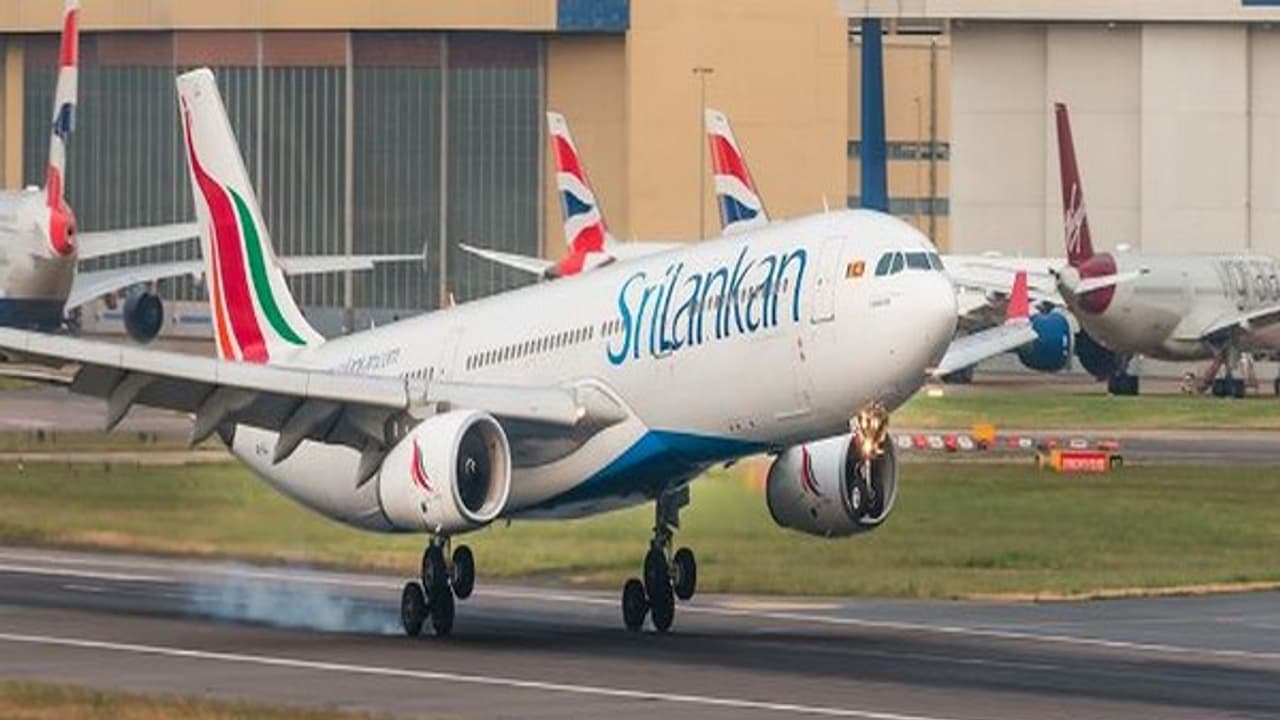A SriLankan Airlines flight from Chennai underwent a comprehensive security check at Colombo, following a security alert regarding a wanted suspect issued by Indian authorities.
A SriLankan Airlines flight arriving from Chennai triggered a high-security search at Colombo’s Bandaranaike International Airport after Indian intelligence agencies flagged the possible presence of five Lashkar-e-Taiba (LeT) operatives on board.

The security scare came just days after the deadly terror attack in Jammu and Kashmir’s Pahalgam on April 22 that left 26 Indian Army personnel dead, including elite Para Special Forces. The suspected involvement of Lashkar-e-Taiba in the Pahalgam ambush has put Indian security agencies on high alert, especially regarding cross-border sleeper cells or sympathisers attempting to flee.
Flight UL 122, operated by aircraft 4R-ALS, landed in Colombo at 11:59 am on May 3, having departed earlier from Chennai. Shortly after takeoff, an anonymous threat email was received by the Chief Security Officer of Chennai Airport at 11:05 am. The mail warned that “five South Indian males on UL 122 (9.55 am) are Lashkar operatives. Clean profile, well-trained, no suspicion.”
The threat, though later classified as “non-specific,” was taken seriously due to its timing and nature. Since the aircraft had already left Indian airspace by the time the warning was issued, the information was immediately relayed to Sri Lankan authorities.
Upon landing in Colombo, the aircraft was isolated and subjected to a comprehensive security screening in coordination with local airport and intelligence personnel. All passengers were deboarded, their identities verified, and the aircraft thoroughly searched. However, no suspicious individuals or items were found.
Confirming the incident, SriLankan Airlines said in an official statement:
“Following an alert from the Chennai Area Control Centre regarding a suspect wanted in India, Flight UL 122 was subjected to a comprehensive security search upon arrival. While no threat was found, the mandatory security measures caused a delay in the next scheduled service, Flight UL 308 bound for Singapore.”
The airline further reassured passengers, stating that “safety and security remain our highest priority” and that it continues to “maintain the highest standards of aviation safety.”
Officials from both countries emphasised that the search was carried out purely as a precaution. In the current climate of heightened alert following the Pahalgam incident, authorities are unwilling to take any risks. Intelligence agencies have been monitoring possible escape routes or air corridors that might be exploited by terror operatives.
The episode has also added a new dimension to India-Pakistan tensions, which have surged after the Pahalgam ambush. India has since banned all goods originating from or transiting through Pakistan and restricted Pakistani-flagged ships from docking at Indian ports. The alert on the Chennai-Colombo flight is being seen as part of this broader national security response, reflecting the urgent coordination between civil aviation, military intelligence, and international airport authorities.
While the flight scare turned out to be a false alarm, officials have not ruled out further alerts in the coming days and are urging vigilance at airports, especially on flights connecting sensitive routes.
As of now, the source of the email threat remains unidentified, and cybercrime units are probing its origin.


